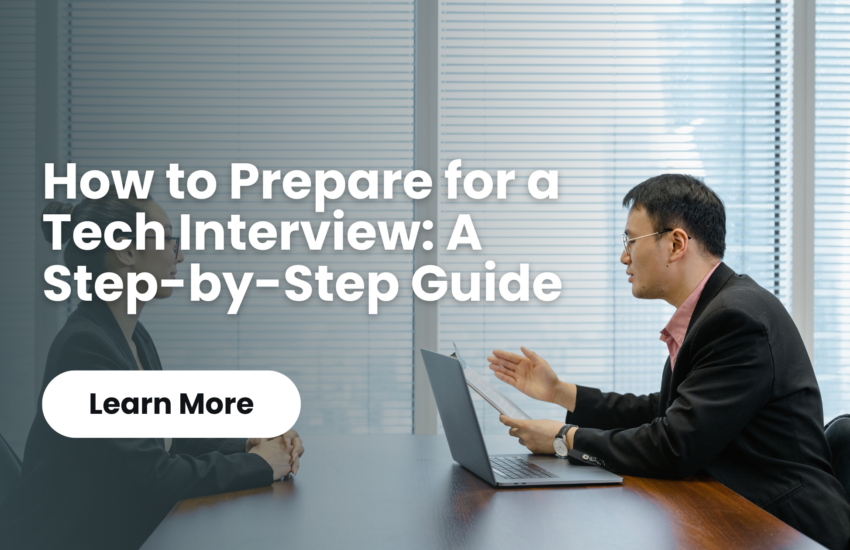Technical interviews can be challenging, but with the right preparation, you can increase your chances of success. Whether you’re applying for a frontend, backend, full-stack, or DevOps role, structured preparation is key. This guide will walk you through the essential steps to help you ace your tech interview.
Step 1: Understand the Interview Process
Most tech interviews follow a structured process, including:
- Resume Screening – Recruiters review your skills and experience.
- Online Coding Test – An assessment of your problem-solving ability.
- Technical Interview – Live coding, system design, and theoretical questions.
- Behavioral Interview – Questions about teamwork, leadership, and problem-solving approach.
- Final HR Round – Salary discussions and cultural fit evaluation.
Step 2: Strengthen Your Technical Skills
- Programming Languages: Master a language like Python, Java, JavaScript, or C++.
- Data Structures & Algorithms: Practice problems on LeetCode, HackerRank, and CodeSignal.
- System Design: Understand architecture principles, load balancing, and database management.
- Frameworks & Tools: Depending on your role, learn React, Angular, Node.js, Django, or Spring Boot.
Step 3: Practice Coding Challenges
- Solve problems on platforms like CodeChef, LeetCode, and GeeksforGeeks.
- Focus on common topics: arrays, linked lists, trees, sorting algorithms, dynamic programming, and graphs.
- Time yourself to improve speed and accuracy.
Step 4: Prepare for System Design Questions
- Learn about scalability, microservices, caching, and API design.
- Study real-world architectures of popular apps like Uber, Netflix, and Twitter.
- Read books like “Designing Data-Intensive Applications” by Martin Kleppmann.
Step 5: Review Behavioral Questions
- Use the STAR (Situation, Task, Action, Result) method to answer behavioral questions.
- Prepare answers for questions like:
- “Tell me about a time you solved a complex problem.”
- “How do you handle conflict in a team?”
- “Describe a challenging project you worked on.”
Step 6: Conduct Mock Interviews
- Use platforms like Pramp, Interviewing.io, and TechHiringHub.
- Get feedback from peers or mentors to improve your communication and coding skills.
Step 7: Research the Company
- Study the company’s tech stack, projects, and recent developments.
- Go through Glassdoor interview experiences.
- Understand their work culture and values.
Step 8: Prepare Your Resume and Portfolio
- Keep your resume concise, highlighting your key skills and projects.
- Showcase your GitHub, personal projects, and contributions to open source.
- Create a portfolio website if applying for frontend roles.
Step 9: Get Comfortable with Remote Interviews
- Test your internet connection and webcam before the interview.
- Practice screen-sharing your code efficiently.
- Minimize background noise and distractions.
Step 10: Follow Up After the Interview
- Send a thank-you email within 24 hours.
- If you don’t get selected, request feedback to improve.
- Stay connected with the recruiter for future opportunities.
Final Thoughts
Technical interviews require a mix of coding expertise, problem-solving skills, and effective communication. Follow this step-by-step guide to enhance your preparation and increase your chances of landing your dream tech job. Platforms like TechHiringHub can help with coding practice, job listings, and mock interview sessions to boost your confidence.

